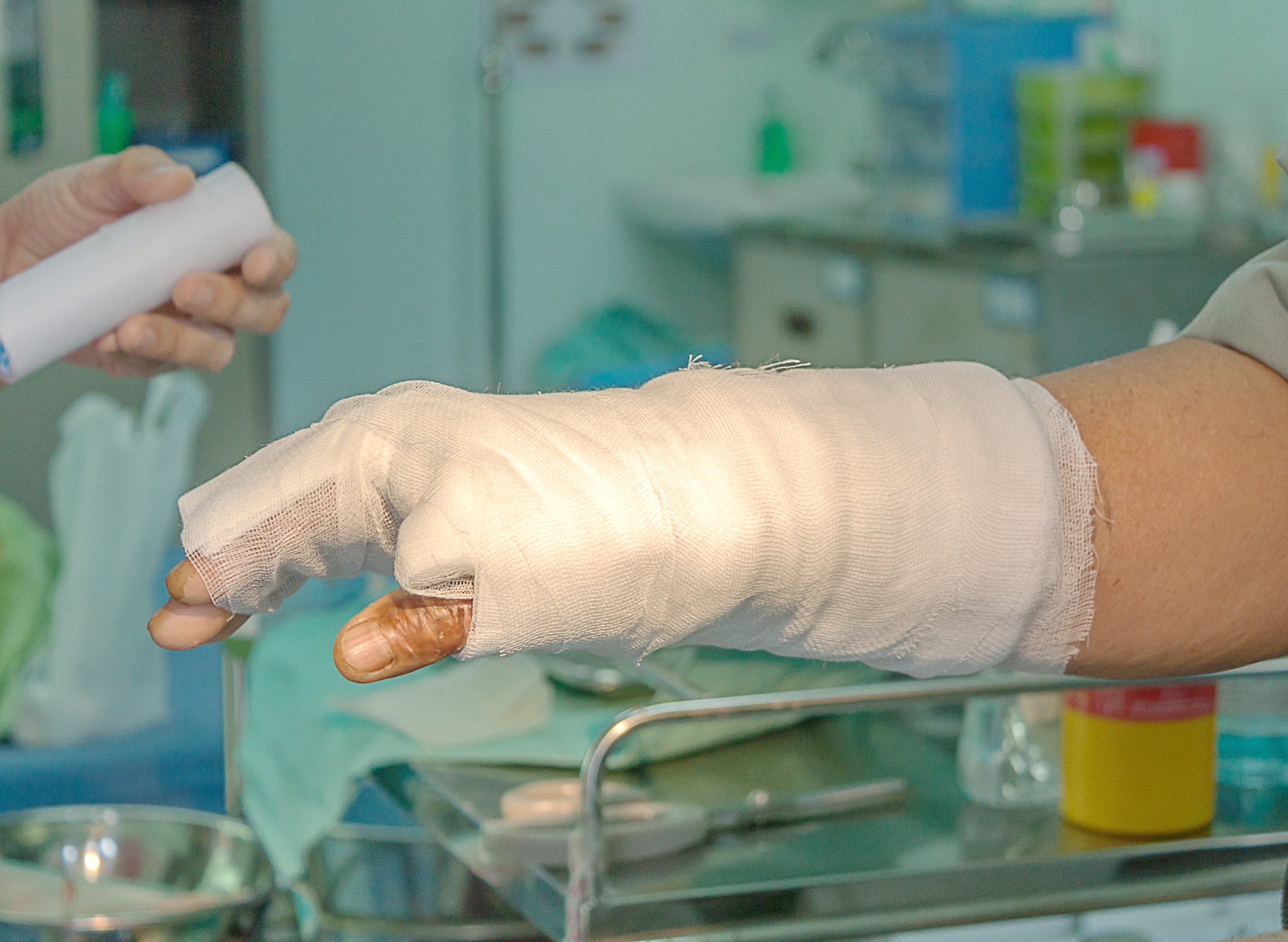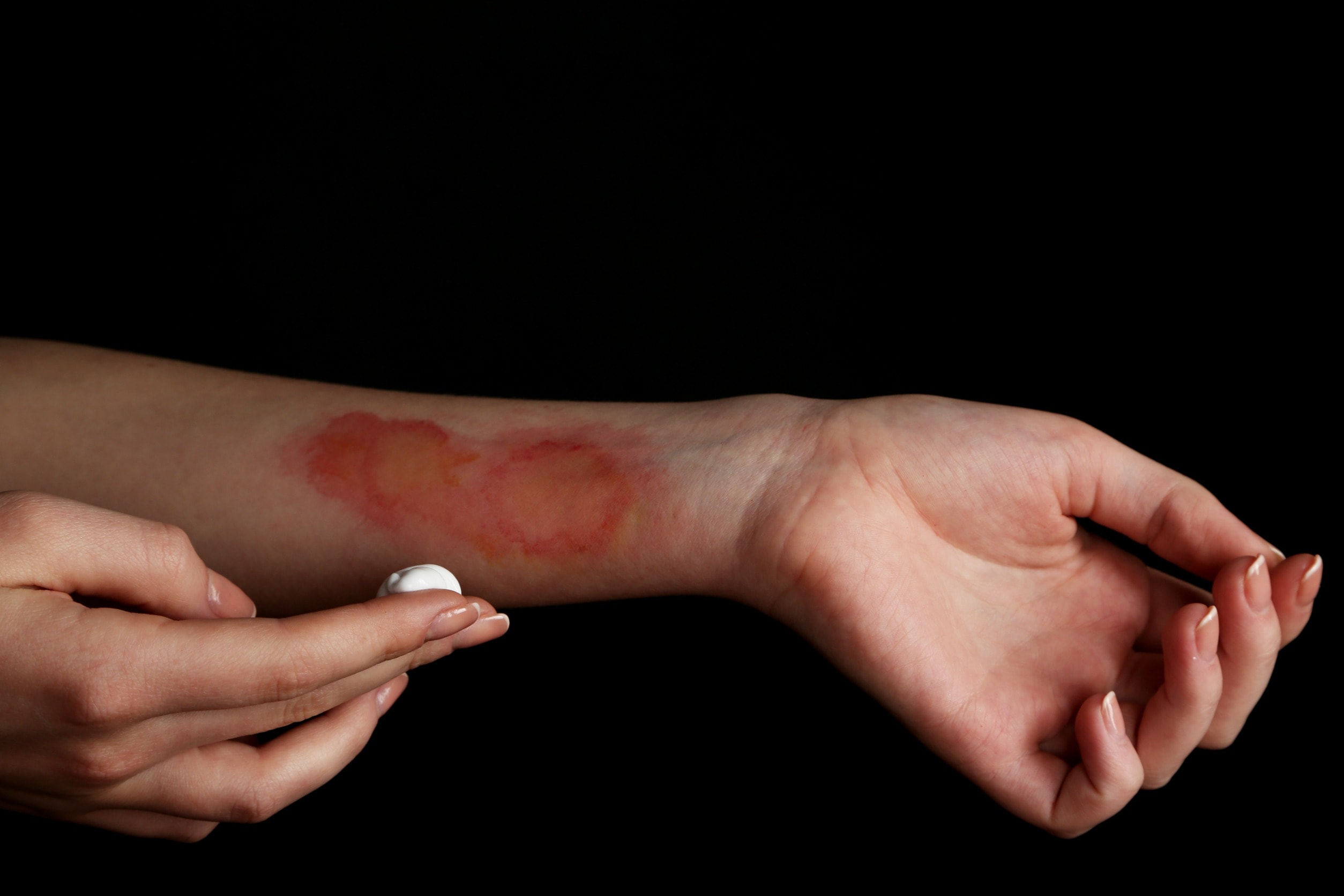After suffering a burn injury at work, you may be wondering what your personal injury claim could be worth? Each claim is valued on an individual basis, but in the following sections, this guide will explain how it is calculated.
We start by explaining who might have an eligible claim for compensation. This is based on there being a breach in the duty of care owed by employers to all employees. If your burn injury was a consequence of their neglect of health and safety matters, read on.
Our guide moves on to some examples of how a burn injury caused by employer or manager negligence could happen. After this, we explore the necessary evidence you’ll need to substantiate a claim. Finally, we lay out the many benefits of working with a personal injury solicitor, like the ones on our panel to start your claim using a type of No Win No Fee contract.
You can connect with our advisory team now if you would like an immediate idea of what your burn injury compensation claim could be worth. They can assess the case in minutes and potentially connect you with a solicitor to get started:
- You can call us on 0800 408 7825.
- Alternatively, you can get in touch with us online by using our online Contact Us page
- Start a conversation via the 24/7 live chat service below.
Jump To A Section
- How Much Is My Burn Injury At Work Claim Worth?
- Can I Make A Burn Injury At Work Claim?
- How Could A Burn Injury At Work Happen?
- What Can I Do If I Want To Claim Burn Injury Compensation?
- How Do I Make A No Win No Fee Claim For Workplace Burn Injuries?
- More Resources About Claiming For Accidents At Work
How Much Is My Burn Injury At Work Claim Worth?
There isn’t exactly a ‘typical payout’ amount for burn injury compensation as each claim is valued on a case-by-case basis. However, if the claim is successful, the compensation can be formed of two heads of loss. The main one is called general damages and this compensates the person for the physical pain and psychological injury experienced as a result of the accident.
In order to apply a value to general damages, those tasked with the calculation may refer to medical reports and publications like the Judicial College Guidelines (JCG). Now in its 17th edition, this document provides various award bracket suggestions for a variety of injuries. Whilst not intended to be anything other than guide figures, we’ve put together a table below showing what the JCG states about burn injuries:
Compensation Guidelines
| Type of Injury | Severity | Award Guideline Amount |
|---|---|---|
| Cases involving multiple severe injuries and the resulting special damage awards | Severe | Up to £1 million and above. |
| Burns | Covering over 40% of the body. | Likely to exceed £127,930 |
| Post-Traumatic Stress Disorder (PTSD) | (a) Severe | £73,050 to £122,850 |
| Facial Disfigurement | (a) Very severe scarring | £36,340 to £118,790 |
| (b) Less severe scarring | £21,920 to £59,090 | |
| (c) Significant scarring | £11,120 to £36,720 | |
| (d) Less significant scarring | £4,820 to £16,770 | |
| (e) Trivial scarring | £2,080 to £4,310 | |
| General Psychiatric Harm | (b) Moderately Severe | £23,270 to £66,920 |
| Hair | (a) Significant | £8,960 to £13,450 |
The first line of our table includes an amount that does not come from the JCG.
Can I Claim For The Long-Term Impact Of Burn Injuries?
The second head of loss that can make up compensation is called special damages. These cover the financial harm experienced by the burn injury. In order to include them as part of the claim, it’s necessary to put forward documented proof of expense or financial damage. Some examples include:
- Payslips that show a drop or loss in earnings caused by time off work.
- Medical bills and plastic surgery expenses for treatments outside of those offered for free by the NHS.
-
Cosmetic aids to help with permanent scarring caused by a third degree burn.
- Receipts and invoices that show you needed to adapt your home or car to deal with a permanent disability.
- Travel receipts and tickets to vital appointments.
- Invoices for any domestic care provided to you by other people.
Can I Make A Burn Injury At Work Claim?
There are three criteria that are used to define negligence. If you are able to demonstrate all three, you could have a valid personal injury claim for compensation. Ask yourself these three questions:
- Did a duty of care apply?
- Did the employer breach that duty of care to me?
- Were my burn injuries a direct result of this breach?
If the answer is ‘yes’ you could start a claim against your employer. This is because all workplaces, a duty of care is owed to your personal safety and well-being. Under the terms of the Health and Safety at Work etc Act 1974 (HASAWA), all employers are required to take reasonable and practicable steps to ensure that employees are prevented from being harmed as they work.
This legal obligation can be met by conducting assessments of risk in their premises and ensuring staff are properly trained. Extinguishers and fire blankets must be fit for use and easily accessible. Furthermore, any hazardous chemical usage must be subject to the additional health and safety laws detailed under the Control of Substances Hazardous to Health Regulations (COSHH).
Should any employer fail to meet their duty of care, and you suffer burns because of it, they could be liable to compensate you for your injuries.
How Could A Burn Injury At Work Happen?
There are many ways that a burn injury at work could arise if health and safety procedures are not properly adhered to. Some examples:
- An employer fails to provide the correct and necessary personal protective equipment (PPE) to a worker. They experience a burned hand trying to perform the task without them.
- Poor standards of storage and protocol with hazardous chemicals cause an employee to experience radiation exposure burns or other chemical burns in the factory store room.
- Materials or debris blocking workplace doors and corridors result in an employee suffering a severe foot burn trying to exit a burning building.
- Despite regular complaints to the management. the water temperature in the work area was too hot. These dangerously hot liquids cause workers to suffer thermal burns.
These are only a few examples of how burn accidents can happen in the workplace. If you’ve suffered first degree burns, second degree burns, or below, contact our team of advisors today to find out if you could make a claim.
What Can I Do If I Want To Claim Burn Injury Compensation?
Assembling proof that a breach in the duty of care harmed you is an important part of the burn injury at work claim process. To assist, here are some examples of useful evidence and actions you can take:
- Ask your GP, hospital and specialist for a copy of your medical records.
- Request a copy of any CCTV footage that captured the accident.
- Ask eyewitnesses for their points of contact. If you decide to work with a personal injury solicitor, they could approach these witnesses for a statement that supports your claim.
- Take photos on your phone of your injuries and the cause of the accident.
- Also, keep a detailed record of important dates, treatments and your mental state.
A skilled personal injury solicitor can help you gather evidence. If you’d like to see if one from our panel could help you, speak to our advisors on the number above.
How Do I Make A No Win No Fee Claim For Workplace Burn Injuries?
There are other great reasons for entrusting your personal injury claim to a skilled solicitor. In addition to collecting supporting evidence, they can:
- Obtain supporting witness statements.
- Explain difficult legal terminology to you.
- Meet court deadlines and time limits for correspondence in your claim.
- Keep you updated on the status of your claim.
- Calculate potential compensation owed to you with accuracy.
- Also, work tirelessly to get you the best possible result.
What’s more, you could take advantage of all these benefits by working with a No Win No Fee solicitor. The ones on our panel frequently use a Conditional Fee Agreement (CFA) to help. This is because, under an agreement like this, you avoid having to pay any upfront or ongoing fees to the solicitors for their services.
If your claim is unsuccessful, there are no solicitors fees owed for completed services on your case. A personal injury claim that settles in your favour requires a success fee to be paid to the solicitor. This is a legally capped percentage amount of the total compensation. Because of this cap, you always receive the majority of the compensation awarded to you.
With this in mind, why not take a moment to see if No Win No Fee agreements could help you? Just connect with our advisor team to see if your claim qualifies. If it does (and you wish to go ahead) they can connect you to superb legal representation today. Find out more when you:
- Call us on 0800 408 7825.
- Or alternatively, you can get in touch with us online by using our online contact page
- Also, you can start a conversation via the 24/7 live chat service below.
More Resources About Claiming For Accidents At Work
- This guide looks at a £120,000 payout for a burn injury at work.
- A claim for facial scarring and PTSD detailed here.
- In addition, more general reading on the accident at work claims process in tis guide.
External help:
- Some information and support from the British Burn Association here.
- As well as this, some advice about burns and scalds from the NHS.
- Lastly, read about legal duties regarding fire safety from GOV.UK
To conclude, we value your interest in our guide about a burn injury at work claim. Please reach out to our advisors for any further information or assistance.





